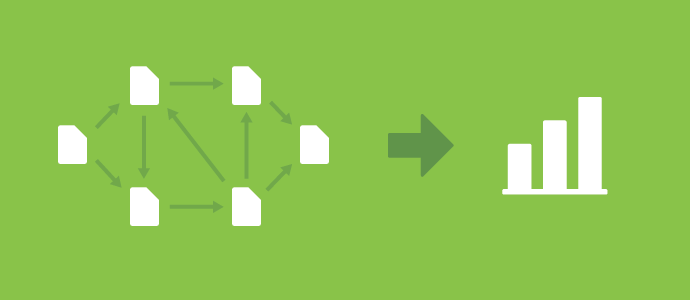I remember the first time I heard the term "data science." It seemed like nothing more than statistical analysis applied to large amounts of data. But I began to wonder if data science could be applied to the vast amounts of data that exist in businesses today. After speaking with numerous customers about their challenges, it became crystal clear that data science will play a huge role in the way they re-engineer their business processes.
Why should businesses care about data science?
Why? Because data science helps companies extract knowledge from data. But that's really hard because most businesses have huge amounts of data sitting idle in CRM, ERP, and marketing systems. And although everyone wants to use data to improve a business process—especially a sales process—finding insight into that data can be challenging.
That's why Clari (and our team of data scientists) is so focused on developing technology that helps find great insights from the mounds of seemingly useless data. But what does this mean, exactly?
How do we convert data into useful information?
Unlike traditional data or BI analysts, data scientists make connections among pieces of data that don't always seem to go together. In fact, data scientists regularly deal with something many people have never heard of—and that's "data exhaust." (I love this term because it's exactly what it sounds like: the trail of real-time data that streams from one click-through activity to the next.)
As data scientists go through their day, they extract knowledge from:
- Data that is essentially unstructured: Unlike the data in traditional systems—such as transaction systems or data warehouses—data scientists work with data generated from multiple applications, each built for a specific purpose. Because that data is generated without anyone asking for it, its format may be structured or unstructured. For example, the click-stream activity (or data exhaust) from an online website store is a byproduct of a consumer purchasing items. And to get deeper knowledge, data scientists often have to integrate some derived features, such as email inactivity or frequency of page visits to your website product catalog, from multiple data exhausts to get valuable insights.
- Data volumes that are large: Since data scientists have no control over selectively collecting just the data they need, they collect everything. In most cases, they are at the mercy of application platforms to get their data, which leads to data volumes being very large.
- Data that is a byproduct of daily activity: Because data scientists want to discover deep knowledge about behaviors impacting underlying processes or systems, the data must be from real-life activity. Otherwise, data science will only discover useless insights. Collecting data exhaust as a person goes about doing his or her daily work—in click-streams of actions—is truly representative of someone's actions. Think about this: If data scientists relied on data entered after an event (such as into a CRM system or knowledge base after a meeting), that data would potentially misrepresent reality. In contrast, data exhaust collected during the normal course of business is a more accurate source of valuable information (i.e., emails sent and received, meetings attended, or documents exchanged during the course of completing a task).
What does this have to do with sales?
Thanks for staying with me from the general description of data science to the specific view of what data we analyze. You can probably tell I believe we can apply this mindset to almost any business challenge.
So, why sales? As a team who cares about selling, why do we—and frankly, why should all sales professionals—care about data science? The answer is because it uncovers detailed knowledge from big data that is produced during the course of normal daily activity that enables teams to see and repeat revenue-generating patterns. And isn't that the ultimate goal of any sales team—to close more deals faster?
Request a demo to see how our data science can help you close business.


